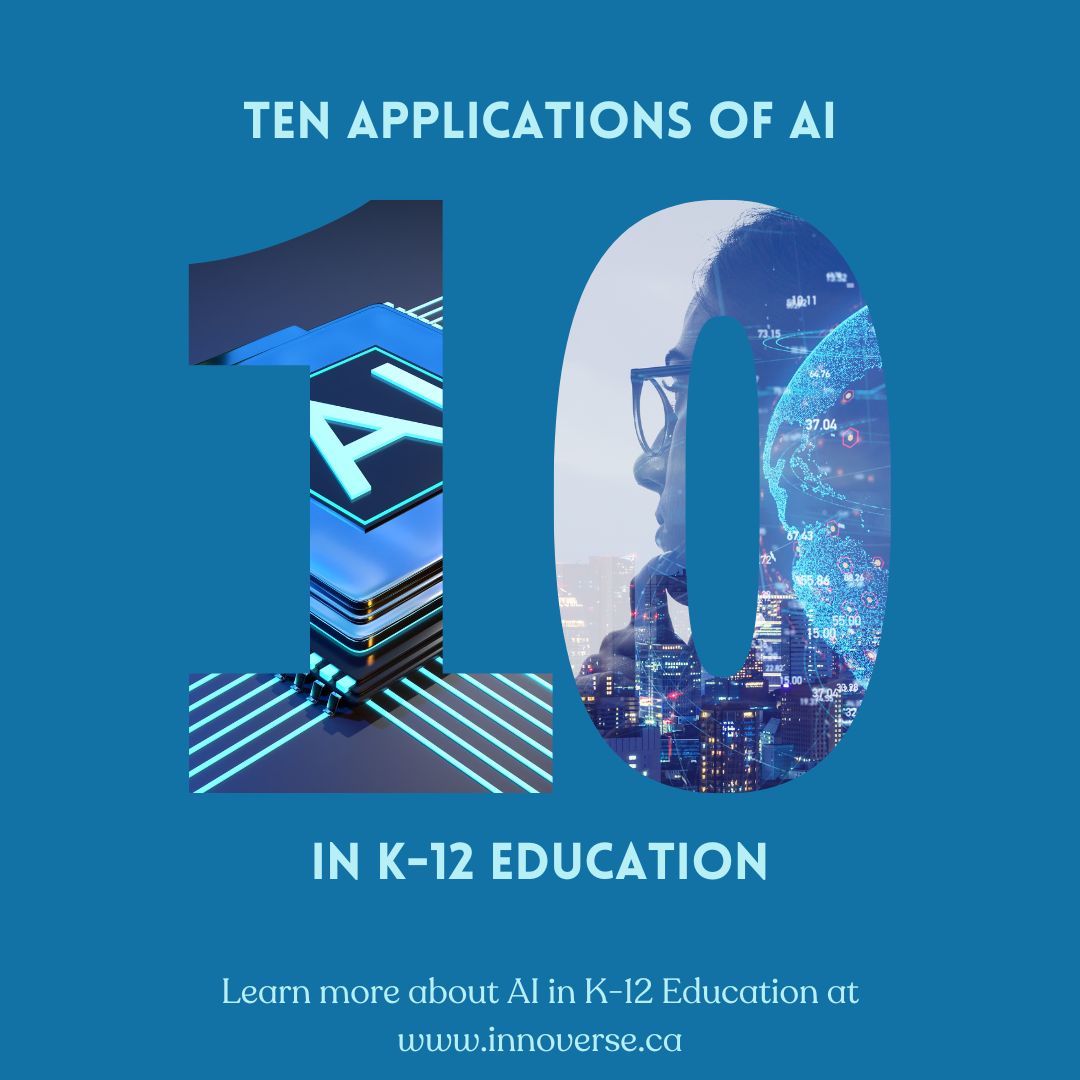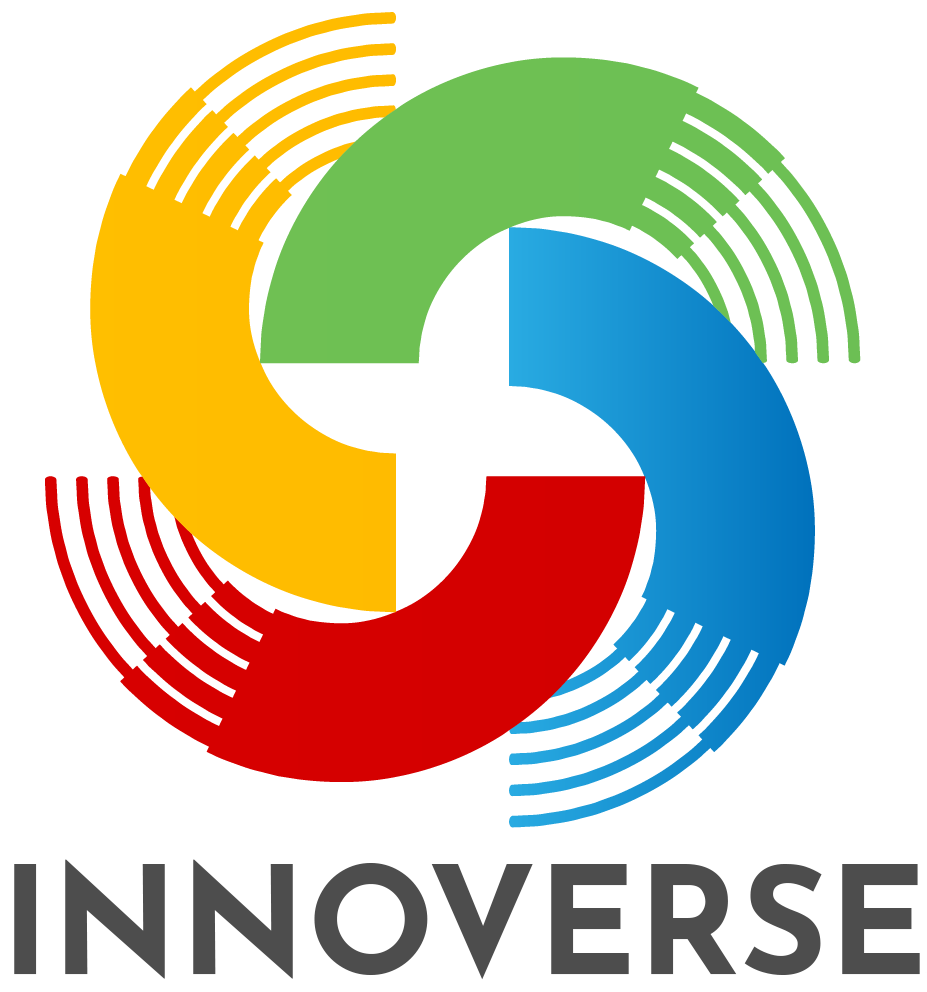10 Artificial Intelligence Uses in K-12 Education

In the dynamic landscape of K-12 education, the integration of Artificial Intelligence (AI) has revolutionized the way students learn and educators teach. From personalized learning experiences to intelligent tutoring systems, AI applications in education have opened up a realm of possibilities to enhance student engagement, comprehension, and overall academic performance. This list encompasses some of the growing areas where artificial intelligence is being found in education. Though not yet necessarily commonplace, the literature reveals that many of these uses are coming soon to a school near you!
1. Personalized Learning: AI-powered educational software can adapt to students’ individual learning styles and paces, providing personalized learning experiences tailored to their specific needs (Chan & Hu, 2023; Crompton & Burke, 2022; Fuchs, 2023; Garcia-Martinez, 2023; Gupta & Chen, 2022; Hwang & Tu, 2023).
2. Intelligent Tutoring Systems: AI-driven tutoring systems can provide students with real-time feedback, additional practice opportunities, and customized learning paths to enhance their understanding of various subjects (Crompton et al., 2022; Crompton & Burke, 2023; Hwang & Tu, 2023; Zawacki-Richter et al., 2019).
3. Adaptive Assessments: AI-based assessment tools can analyze students’ performance data and provide educators with insights into their strengths and weaknesses, facilitating targeted interventions and support strategies.
4. Virtual Reality (VR) and Augmented Reality (AR) Learning: AI can be used to create immersive and interactive virtual learning environments, allowing students to explore complex concepts through realistic simulations and visualizations.
5. Language Learning Support: AI-powered language learning platforms can assist students in developing their language skills by providing interactive lessons, pronunciation guidance, and language practice exercises.
6. Automated Grading Systems: AI-based grading systems can automate the process of grading assignments and assessments, enabling educators to save time and focus on providing more targeted feedback and support to students.
7. Educational Content Creation: AI tools can assist educators in creating engaging and interactive educational content, including lesson plans, quizzes, and educational games, to enhance students’ learning experiences.
8. Data-Driven Decision Making: AI analytics tools can analyze large datasets to identify trends and patterns in student performance, enabling educators to make data-driven decisions to improve teaching methodologies and student outcomes.
9. Intelligent Content Filtering: AI algorithms can help filter and curate educational content, ensuring that students have access to appropriate and relevant learning materials while maintaining a safe and secure online learning environment.
10. Interactive Chatbots for Learning Support: AI-powered chatbots can provide students with instant access to information, answer their questions, and offer learning guidance, fostering a supportive and engaging learning environment both inside and outside the classroom (Chen et al. 2023; Fuchs, 2022; Fuchs, 2023; Gupta & Chen, 2022; Liang et al., 2021; Sweeney, 2023; Tlili et al., 2023; Yu, 2023).
References
Chan, C. K. Y., & Hu, W. (2023). Students’ voices on generative AI: Perceptions, benefits, and challenges in higher education. International Journal of Educational Technology in Higher Education, 20(1), 43. https://doi.org/10.1186/s41239-023-00411-8
Chen, Y., Jensen, S., Albert, L. J., Gupta, S., & Lee, T. (2023). Artificial Intelligence (AI) Student Assistants in the Classroom: Designing Chatbots to Support Student Success. Information Systems Frontiers, 25(1), 161–182. https://doi.org/10.1007/s10796-022-10291-4
Crompton, H., Jones, M. V., & Burke, D. (2022). Affordances and challenges of artificial intelligence in K-12 education: A systematic review. Journal of Research on Technology in Education, 1–21. https://doi.org/10.1080/15391523.2022.2121344
Crompton, H., & Burke, D. (2022). Artificial intelligence in K-12 education. SN Social Sciences, 2(7), 113. https://doi.org/10.1007/s43545-022-00425-5
Crompton, H., & Burke, D. (2023). Artificial intelligence in higher education: The state of the field. International Journal of Educational Technology in Higher Education, 20(1), 22. https://doi.org/10.1186/s41239-023-00392-8
Fuchs, K. (2022). The importance of competency development in higher education: Letting go of rote learning. Frontiers in Education, 7, 1004876. https://doi.org/10.3389/feduc.2022.1004876
García-Martínez, I., Fernández-Batanero, J. M., Fernández-Cerero, J., & León, S. P. (2023). Analysing the Impact of Artificial Intelligence and Computational Sciences on Student Performance: Systematic Review and Meta-analysis. Journal of New Approaches in Educational Research, 12(1), 171. https://doi.org/10.7821/naer.2023.1.1240
Gupta, S., & Chen, Y. (2022). Supporting Inclusive Learning Using Chatbots? A Chatbot- Led Interview Study.
Hwang, G.-J., & Tu, Y.-F. (2021). Roles and Research Trends of Artificial Intelligence in Mathematics Education: A Bibliometric Mapping Analysis and Systematic Review. Mathematics, 9(6), 584. https://doi.org/10.3390/math9060584
Liang, J.-C., Hwang, G.-J., Chen, M.-R. A., & Darmawansah, D. (2023). Roles and research foci of artificial intelligence in language education: An integrated bibliographic analysis and systematic review approach. Interactive Learning Environments, 31(7), 4270–4296. https://doi.org/10.1080/10494820.2021.1958348
Sweeney, S. (2023). Who wrote this? Essay mills and assessment – Considerations regarding contract cheating and AI in higher education. The International Journal of Management Education, 21(2), 100818. https://doi.org/10.1016/j.ijme.2023.100818
Tlili, A., Shehata, B., Adarkwah, M. A., Bozkurt, A., Hickey, D. T., Huang, R., & Agyemang, B. (2023). What if the devil is my guardian angel: ChatGPT as a case study of using chatbots in education. Smart Learning Environments, 10(1), 1–24. https://doi.org/10.1186/s40561-023-00237-x
Yu, H. (2023). Reflection on whether Chat GPT should be banned by academia from the perspective of education and teaching. Frontiers in Psychology, 14, 1181712. https://doi.org/10.3389/fpsyg.2023.1181712
Zawacki-Richter, O., Marín, V. I., Bond, M., & Gouverneur, F. (2019). Systematic review of research on artificial intelligence applications in higher education – where are the educators? International Journal of Educational Technology in Higher Education, 16(1), 39. https://doi.org/10.1186/s41239-019-0171-0
